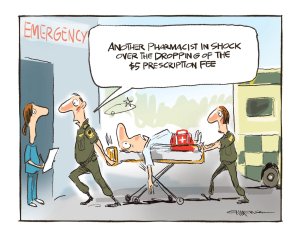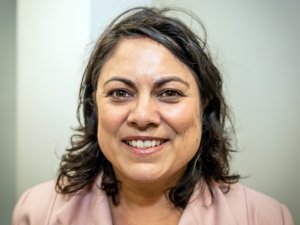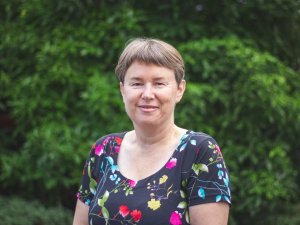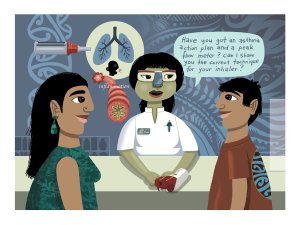Academic pharmacist Nataly Martini discusses the medical management of asthma in adults and adolescents, which has evolved to prioritise early anti-inflammatory treatment. She also explains how to improve patient outcomes by proactively identifying poor asthma control and supporting equitable access to education and treatment
Disbelief from University of Otago researcher at news copayments will be dropped
Disbelief from University of Otago researcher at news copayments will be dropped
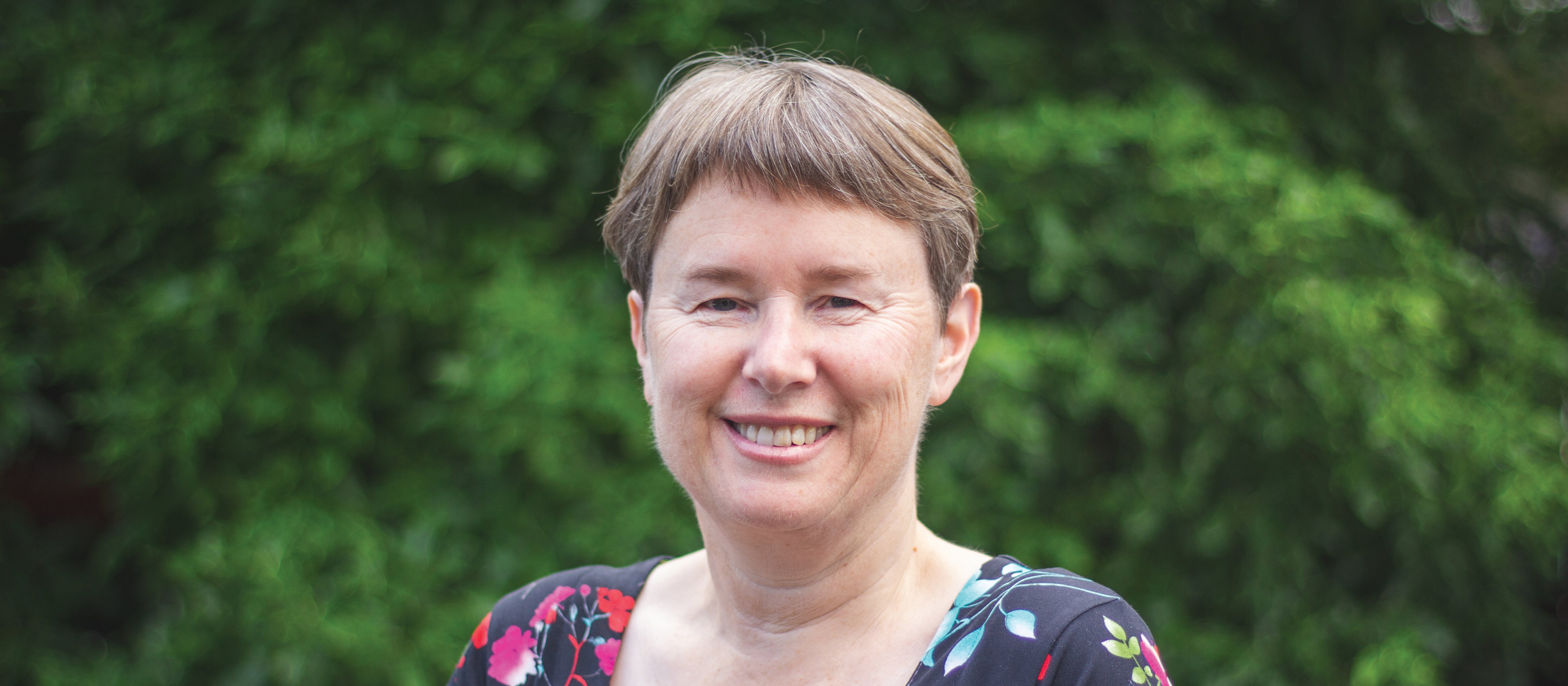
When University of Otago social pharmacy researcher Pauline Norris first heard prescription copayments were going to be dropped, she didn’t believe it, writes Natasha Jojoa Burling
When social pharmacy researcher Pauline Norris heard prescription copayments would be scrapped, it took a while to sink in.
Professor Norris’ research on the effect of the $5 charges was widely reported and has been credited as instrumental in providing evidence to prompt the copayment removals.
The University of Otago study, led by Professor Norris, was published in the BMC Health Services Research journal on 14 January. The aim was to determine whether exempting people with high health needs in high-deprivation areas from a $5 prescription charge reduced hospital use.
People who didn’t have to pay for prescriptions were 30 per cent less likely to be admitted to hospital during the study year than those in the control group. They also had a 57 per cent reduction in the odds of a mental health admission.
Professor Norris and her colleagues strongly recommended the $5 prescription copayments be removed for those with high health needs and low incomes or be scrapped entirely. The second option would be administratively simpler and avoid those with very high needs missing out because they couldn’t navigate bureaucratic processes.
After Professor Norris’ study was published, a group of pharmacists formed the Prescription Access Initiative (PAI), also releasing a report on the impact of copayments. The Pharmacy Guild also lobbied for the charges to be scrapped.
Health minister Ayesha Verrall refused to get rid of the fees and said she had no plans to, but she eventually announced on Budget day (17 May) that the fees would dropped from 1 July.
Professor Norris says it took her a long time to believe the Budget day announcement. “It is really encouraging for researchers that the Government does take notice of research evidence,” she says. Even researchers in other health fields have told her they’re heartened by it.
“It’s great the charges are gone; it was the obvious thing to do,” adds Professor Norris. “It’s fantastic for all the people in the study, who go without things they really need,” she says.
Many who participated in the research had serious health problems but were going without medicines. They would finish a course, and then wait until they could afford the next lot.
“It was striking how many people choose between medicines and food,” she says. “They either go without medicines, do not eat, or eat less because they don’t have enough money for food.”
Many participants were employed or were on a pension, but some couldn’t work because of health problems. “If people can’t afford medicines, there’s not much chance of going back to work,” says Professor Norris.
She hopes their lives will improve now the $5 charge has gone. “It would be great if they can be more involved in paid work, more active in the community and having a better life. That would be really fantastic.”
Professor Norris says the National Party’s plans to bring back the $5 charge if it became government wouldn’t work. If it wins the election, the party plans to give exemptions to some people, such as those with Community Services Cards and SuperGold cards. However, she says most prescriptions go to people on low incomes or older people, meaning most scripts would be free. “It’s hard to see it would be worth having a whole system just for the other prescriptions.”
She says the UK has a system where older and younger people with certain illnesses don’t pay for medicines, but the reality is 90 per cent are exempt.
Professor Norris is a long way through another project on groups struggling to access medicines. Māori, Pacific and refugee families and impoverished Pākehā households were followed for a year. They were asked about their lives, experience with healthcare and access to medicines.
“Some people have such difficult and complicated lives that healthcare and medicines fall by the wayside. They have so many other pressing problems,” says Professor Norris.
The research, funded by the Health Research Council, is expected to be published in about a year. Sandy Bhawan, who used to work at Pharmac, was part of the research team, but Robyn Harris, who’s still at Pharmac, has taken over.
Professor Norris’ interest in how governments make people pay for medicines goes back to the 1990s. In 1993/94, she spent time in Sweden, Norway and Finland, where people pay more for medication than in New Zealand, but the amount depends on their disease.
After prescription charges went from $3 to $5 in 2013, Professor Norris did qualitative research on the impact of the increase and how people who struggle to pay for medicines managed. They reported taking a lower dose or going without medicines completely. Some would have big breaks; they would finish their course of medicines then wait until they could afford the next lot.
That research led to other smaller studies, then Professor Norris came up with the idea of doing a randomised control trial, which gives stronger evidence of causation. That is what led to the study, published in January, that examined the effect of copayments.
Professor Norris is off to Finland again in mid-April next year to spend a couple of months at the University of Turku in the country’s south-west. She has a fellowship and will be finding out what the university’s doing and looking at partnership projects. The university does a lot of randomised control trials about policy, quite similar to the Free Meds study about the prescription copayment.
The trip won’t all be work-workwork. Professor Norris likes the Finnish people, and Turku is on the coast, with thousands of little surrounding islands, and is very pretty. It’s also great for cycling.
Professor Norris loves travelling but hasn’t done much in the past few years. France is her all-time favourite country. The lifestyle appeals to her: “The food and wine scene is amazing; the people are lovely, too. It’s a really nice country to cycle in,” she enthuses.
She lives in Dunedin with her husband, Paul O’Donnell, and her two cats, Elsa and Jim; she is a confessed cat person.
- Since 2018, she has worked as a research professor at Va’a o Tautai – Centre for Pacific Health.
- From 2001 to 2018, she worked at the School of Pharmacy at the University of Otago, first as a senior lecturer and since 2008 as a professor.
- From 1994 to 2001, she worked at the Health Services Research Centre at Victoria University in Wellington.
- From 1992 to 1995, she did a training fellowship at the Health Services Research Centre at Victoria University.
- In 1993, she completed a doctorate at Victoria University in sociology about community pharmacy, looking at the history, influences and changes in pharmacy and how pharmacies responded.



